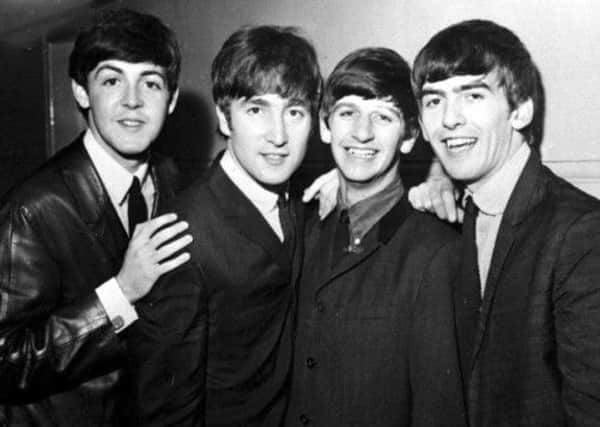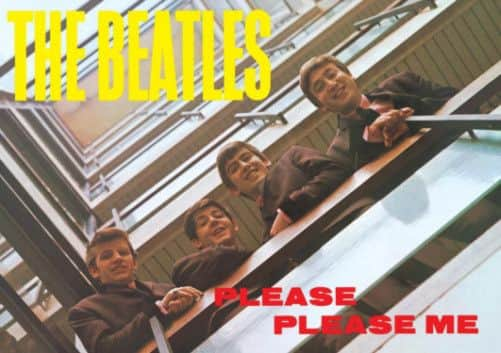When the Fab Four ruled the world


BACK in March 1963, Britain’s future wasn’t looking too bright. Harold MacMillan, the embodiment of the old guard, was Prime Minister, our former wartime ally Charles de Gaulle had just vetoed the UK’s entry into the EEC and Dr Beeching was about to publish his report calling for a cull of our railway network.
If that wasn’t enough, the country was only just starting to thaw following one of the coldest winters since the Napoleonic wars. Cliff Richard and the Shadows may have been singing merrily about going on a summer holiday, but on the face of it there seemed to be precious little worth smiling about.
Advertisement
Hide AdAdvertisement
Hide AdYet from the midst of this monochrome existence four young musicians from Liverpool emerged to bring a splash of colour to the world and lead a cultural revolution that still reverberates today.


It’s exactly 50 years today since The Beatles released their debut album, Please, Please Me, and in doing so changed the face of modern music. By this time the band had already released their first single, Love Me Do, the previous year. But it was their debut LP that really made people sit up and take notice, proving at the same time that they were no one-hit wonders.
The album was rush-released by the band’s record company Parlophone to cash in on the success of their single Please, Please Me which reached number two in the official charts (it was kept off the top spot by Summer Holiday). Ten of the album’s 14 tracks were recorded in just a single day, including Twist and Shout which was left to the end to protect John Lennon’s voice.
Please, Please Me reached the top of the charts in May (ironically knocking Cliff Richard and co off their perch) where it remained for 30 weeks before being replaced by With The Beatles, their follow-up record.
Advertisement
Hide AdAdvertisement
Hide AdAuthor Barry Miles says the band transformed British culture. “Before The Beatles you only really had Variety in Britain and they did for British pop music what Elvis Presley did for American rock’n’roll,” he says.
Miles, who knew the band during the 60s and later wrote an official biography of Sir Paul McCartney, says it was the first time rock ’n’ roll was taken seriously. “Up to this point it had just been a form of entertainment. It had never had any social or artistic meaning or value, it was just seen as pop.”
But this all changed with the emergence of The Beatles. “On Please, Please Me they wrote half the songs themselves which was the first time this had happened. Cliff Richard didn’t write his songs – they were chosen for him by some A and R man.”
Please, Please Me wasn’t The Beatles’ best album, in fact it probably wouldn’t make most people’s top 10. But back in 1963 nobody, not even the band themselves, could have predicted just how big they would become. “The album was basically their live set, although each song was carefully arranged,” explains Miles. “From early on they were very innovative and they varied each track so that it didn’t sound like the same band from one song to the next.
Advertisement
Hide AdAdvertisement
Hide Ad“They were the first British rock ’n’ roll band. There had been precedents but this was the first time anyone had come up with the goods.”
The success of Please, Please Me was perhaps surprising given the fact that hitherto the pop charts had been dominated by film soundtracks and easy listening crooners. But by the end of the year Beatlemania had swept not just across Britain, but Europe, too, with the US still to come.
“Once The Beatles established themselves everyone, even people in America, had to deal with them. They could reject them but they had to deal with them,” says Miles.
Even Philip Larkin, a big jazz fan, sardonically wrote that sexual intercourse began in 1963 – “Between the end of the ‘Chatterley’ ban/ And the Beatles’ first LP.”
Advertisement
Hide AdAdvertisement
Hide AdIn a way Larkin was right, because The Beatles coincided with a seismic social, cultural and economic shift that not only saw the UK finally shake off the austerity of the postwar years, but also the creation of a new sense of freedom.
“This was the beginnings of a youth culture and a period of full employment. Young people didn’t get paid huge wages, they couldn’t afford to buy cars or houses, but for the first time they had enough money to buy clothes and records.”
Miles believes The Beatles were in many ways the prototype boy band.
“The Beatles weren’t that much different from the Bay City Rollers, they just wrote their own songs,” he explains.
Advertisement
Hide AdAdvertisement
Hide AdHowever, the clamour to see the band play meant their live shows became increasingly farcical which inadvertently led them to concentrate on working in the studio.
“When they were playing live every time Paul shook his hair the girls started screaming and it quickly reached the point where they couldn’t hear themselves play, never mind the audience, but this led to them becoming more innovative in the studio,” added Miles.
For those who grew up with them, it’s perhaps hard to believe that half a century has passed since they first listened to the opening bars of I Saw Her Standing There, but Miles says the significance of John, Paul, George and Ringo in the great rock pantheon remains unparalleled.
“Only Bob Dylan comes close. Not only were they the most commercially successful band in the world, they were also the most avant-garde and underground band.
Advertisement
Hide AdAdvertisement
Hide Ad“They introduced backwards tracking, sitars and feedback and they were the first ones who put lyrics on their album sleeves,” he says.
And after all these years they’re still the biggest and the best.
Toppermost of the poppermost
Please, Please Me was recorded at the Abbey Roads studio in a marathon session in February, 1963.
It included songs such as Love Me Do, I Saw Her Standing There and Twist and Shout.
Advertisement
Hide AdAdvertisement
Hide AdThe album reached the top of the charts in May 1963, where it remained for the next 30 weeks, before being replaced by the band’s follow-up, With The Beatles.
Last month, to mark 50 years since The Beatles recorded the album, musicians ranging from Joss Stone to Graham Coxon re-recorded Please, Please Me in a special session organised by BBC Radio 2.